After 14 years of Tory rule, is Manchester any Greater?

Sir Alex Ferguson's Manchester United were within touching distance of becoming the football champions of England for the nineteenth time when voters went to the polls 14 years ago in a general election that changed the course of British history.
At the time, Bolton's Peter Kay was in the middle of performing a world record-breaking 20 shows at what was known then as the M.E.N Arena. And Warehouse Project founder Sacha Lord was preparing to host the first ever Parklife music festival at Platt Fields Park.
But, by the time the final whistle was blown on the last day of the Premier League season, it was not just Fergie's dreams of four consecutive title wins that were dashed. His beloved Labour Party had lost too, ending 13 years of dominance in Westminster.
HAVE YOUR SAY: The Greater Manchester General Election 2024 Survey
On May 12, 2010, David Cameron and Nick Clegg stepped out into the Downing Street rose garden to give their first joint press conference. The previous day, the Conservatives and Lib Dems agreed a deal to form the first coalition government since 1945.
The Tories have now come first place four times in a row - as have Man City. But it's not just the Blues' fortunes that have changed.
Greater Manchester has changed in so many ways since 2010. The city's skyline, for one thing, has been totally transformed.
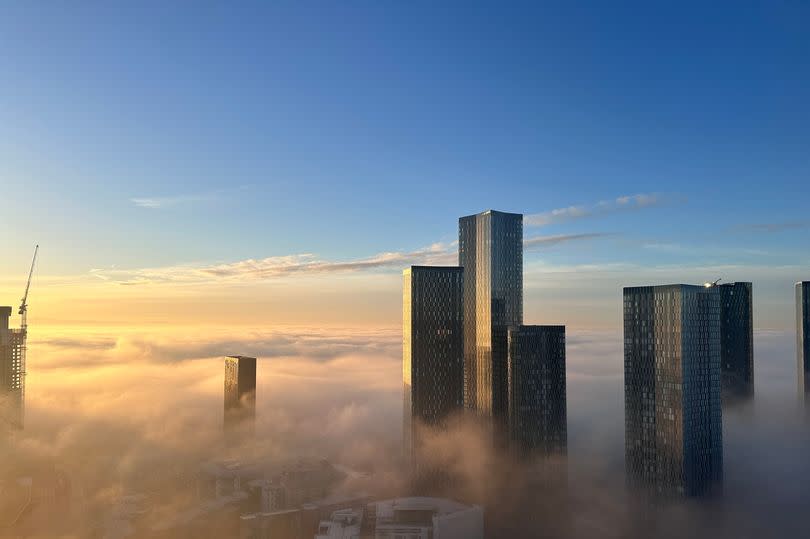
In recent years, the city-region's economy has grown faster than the rest of the UK's as our population approaches 3m. And, in many ways, the city has grown in confidence too, with one neighbourhood named among the 'coolest' in the world and its global reputation for arts and culture built on with Factory International's Aviva Studios and the Co-op Live arena both opening in the last year alone.
Last year also saw luxury fashion brand Chanel host its exclusive Métiers d’Art catwalk in the city that made its name in the global textiles trade. But, as celebrities strutted through the Northern Quarter that night, many Mancunians had other things on their mind.
A few weeks before the high-end fashion show was held, a shocking report painted a bleak picture of the reality now faced by around 3.8m people across the country - 1m of them children. It found that Manchester had the second highest level of destitution in the UK, with nearly 2 per cent of households in the city struggling to afford their most basic physical needs to stay warm, dry, clean and fed.
Huge inequalities prevail within our city-region. A man born in Oldham can expect to live in good health for 10 years less than one born in Trafford, while in Salford, women in the most deprived neighbourhoods can expect to live 11 years less than in wealthier parts.
In the last general election, the then-Prime Minister Boris Johnson promised to 'level up' the country. It followed promises previously made by his party of a 'Northern Powerhouse' that would bring billions of pounds of investment, jobs and opportunities to the region.
Greater Manchester has undoubtedly benefited from government support for certain schemes such as the expansion of the Metrolink. But with many promises broken - particularly on big rail projects like HS2 - local leaders say the reality has not matched the rhetoric.
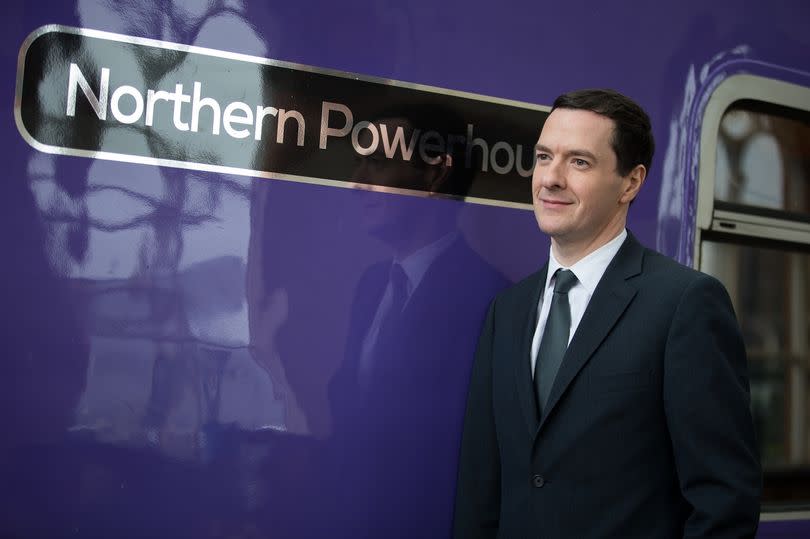
At the same time, while the North has been given a louder voice through new regional mayors, successive governments have overseen enormous cuts to public services. Local councils have been hit especially hard with real-terms funding slashed in half.
Since 2010, Manchester council's core spending power has been cut by 34 per cent when adjusted for inflation. That is a loss of £312.5m a year - nearly £761 per person, which is actually a cut of 42 per cent when you account for the city's growing population.
Meanwhile, demand for services has increased with a huge rise in homelessness which has gone up by 49 per cent in the last four years alone in Manchester. NHS funding has also not kept up with demand and Greater Manchester now faces a £180m deficit.
And, while the crime rate has risen by nearly 50 per cent since 2015, the number of officers at Greater Manchester Police dropped dramatically, contributing to the crisis that unfolded in the force. Officer numbers have only just returned to 2010 levels this year.
Ahead of the general election on July 4, the Manchester Evening News looks back at the big moments in Greater Manchester over the last 14 years and how the lives of people here - and the city-region itself - have changed since the Conservatives first came to power.
Poverty
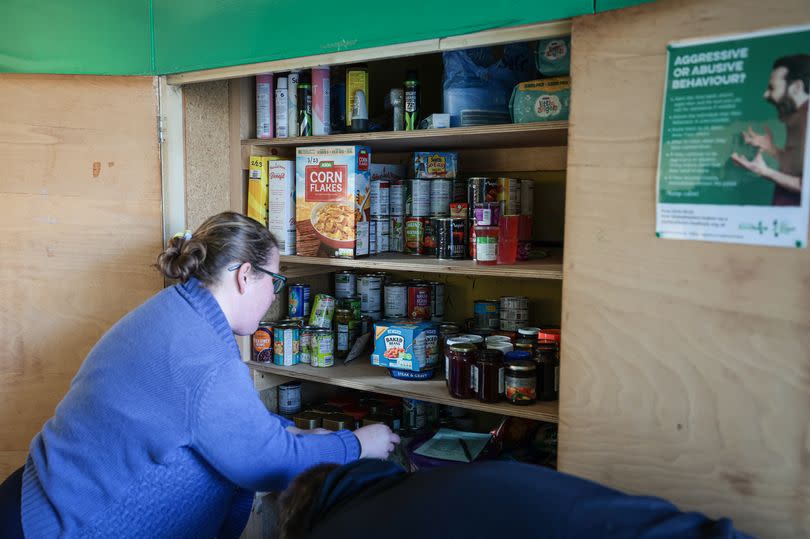
Choices between heating and eating have become more common across the country, with record numbers of people now relying on emergency food parcels. The number of children living in relative poverty - nearly four in 10 in Manchester - is also at a record high.
In some parts of Greater Manchester, more than half of children are living in poverty with Oldham, Bolton and Blackley topping the list. In Manchester alone, the Trussell Trust network of food banks handed out 31,000 food parcels last year, up from 12,000 in 2017/8.
Manchester United star Marcus Rashford brought the issue to the fore with his free school meals campaign during the pandemic. As Covid closed schools, the south Manchester striker teamed up with charity FareShare to help bring free meals to those stuck at home.
That summer, he forced the government to U-turn on its decision not to award free school meal vouchers over the school holidays. And it didn't stop there, with the forward campaigning for a £20 Universal Credit uplift to be made permanent the following year too.
Sadly, since his successful campaign, the situation has got worse. Earlier this year, a report by Child Poverty Action Group found that nearly one in ten children in Greater Manchester - 46,000 kids in total - are living in poverty but are not entitled to free school meals.
The government says it has extended eligibility for free school meals since 2010. However, to qualify through Universal Credit, a family must earn less than £7,400 net annually - a threshold that has not changed since 2018, despite the rate of inflation rising significantly.

Commenting on the rising rate of child poverty earlier this month, Greater Manchester Poverty Action CEO Graham Whitham said children are going to school hungry. He also called on the next government to end the 'cruel' two-child limit which caps benefits.
"[It] forces parents into unimaginable choices, denies families the support they need from our social security system, and limits the potential of thousands of children and young people across our country," he said of the Conservative Party policy introduced in 2017.
This was not the only change in the welfare system over the last 14 years that has had repercussions in Greater Manchester. The 'bedroom tax', which came into effect in 2013, meant that council and social housing tenants with a spare room had benefits cut too.
At the time, the government argued that the shake-up would stop people on benefits taking up unnecessary space and clear up the housing waiting list. In Greater Manchester, 50,055 residents were affected, with Manchester and Salford the hardest hit in the UK.
Just two months after the policy was introduced, the M.E.N reported that thousands of Greater Manchester were sinking into debt because of the controversial policy. Later that year, nearly two-thirds of social housing tenants in Salford were behind on their rent.
Disabled people have also had to bear the brunt of benefit cuts. In 2013, the M.E.N reported that more than half of people in Greater Manchester who applied for sickness benefits were rejected under controversial ‘fitness-to-work’ tests designed to weed out cheats.

However, in the years that followed, many decisions by the Department for Work and Pensions (DWP) were being overturned. In 2019, Bolton council revealed that almost four in every five cases that the town hall took on resulted in residents' benefits being reinstated.
Last month, the Equality and Human Rights Commission announced that it was investigating the DWP over how it has treated disabled people, focusing on the 'fit to work' assessments that have led to some losing a significant amount of support. The DWP says it is committed to improving the lives of disabled people and it takes its obligations under the Equality Act 'incredibly seriously'.
Rick Burgess, from the Greater Manchester Coalition of Disabled People, cites two United Nation reports which raise concerns about the treatment of disabled people in the UK. It comes after a UN advisor said evidence showed the government's Work Capability Assessment programme - first implemented under a Labour government in 2008 to assess whether someone can claim benefits - led to 600 suicides in three years.
The government has said it plans to phase out the assessments. But Mr Burgess says that the damage has already been done. "The damage done since 2008 is, in many ways, permanent," he said. "Many lives lost, the degradation of health - that can't be put right."
Over the last few years, another row over benefits has been brewing. Until a few months ago, Local Housing Allowance (LHA) had been frozen since 2020, despite charities, campaigners and council bosses calling for an urgent uplift to prevent a rise in homelessness.
Last November, Chancellor Jeremy Hunt confirmed the four-year freeze would end. But according to Manchester council, just 11 per cent of privately-rented two and three-bedroom properties in Manchester are now affordable after April's housing benefit increase.
Conservatives have promised to further reform the welfare system if they win the general election. Their manifesto cites a forecast that 424,000 fewer people would receive benefits as a result of the shake-up, with plans to tighten up who is deemed eligible to work.
Housing and homelessness
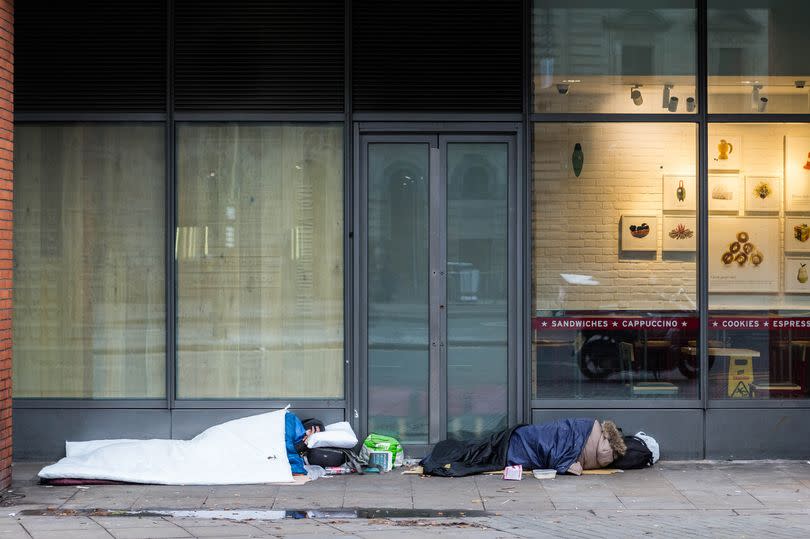
Official rough sleeping figures are not perfect - they are based on a snapshot on a single night - but they do give an indication of the trends. However, according to that data, on one autumn night in 2010, there were just seven rough sleepers counted in Manchester.
By 2018, that number soared to 123 - although at the last count, it was 48. What the data does not pick up is 'hidden homelessness'.
In 2014, the M.E.N reported a 'massive' rise in rough sleeping with people living in caves, old air raid shelters and under a supermarket, many hit by benefit sanctions and arrears. But charities said the full extent of the issue was even worse than the numbers suggested.
The following year, the M.E.N revealed that there had been a six-fold increase in people sleeping rough in Manchester since 2010, with a 150 per cent increase across Greater Manchester. A couple of years later, the problem was in plain sight on the streets for all to see.
By then, sleeping bags and begging cups were a common sight in the city centre. But now, zombie-like figures were haunting the streets of Manchester, particularly around Piccadilly Gardens where a surge in the use of the drug Spice took hold.
Over just one weekend in that period, there were 58 drug-related emergency call-outs to the city centre. And while the number of call-outs is no longer so extreme, the M.E.N revealed earlier this month that the synthetic cannabinoid is back on the streets.
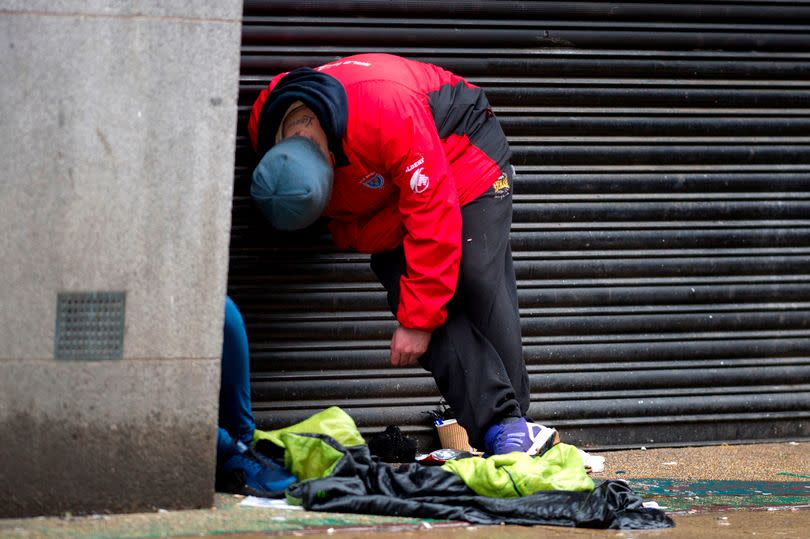
In fact, reacting to the special report, M.E.N readers said that it never went away. Whether or not the city has truly shaken off its reputation as 'Spicechester', the pale, wasted figures who still appear on the streets of Manchester are proof of a prevailing issue.
In 2017, the M.E.N spoke to a youth support worker who said she knew of at least four deaths linked to Spice, either because users' hearts stopped or because it made them suicidal. At the time, no public bodies kept track of how many rough sleepers were dying.
In October 2018, less than two months after the M.E.N exposed this data gap, the Office for National Statistics announced that it would start counting homeless deaths. According to the latest data, across the North West, this number stood at 114 in 2021 alone.
During his first campaign to become Greater Manchester mayor, Andy Burnham pledged to end rough sleeping. He soon set up the A Bed Every Night scheme and, by 2020, partly helped by government support during the pandemic, the numbers had fallen significantly.
But as the ban on evictions was lifted, council bosses warned that the number of people becoming homeless was set to skyrocket. That year, Manchester council opened 6,525 homeless applications - more than any other local authority across England in 2021/22.
Worryingly, the number of families booked into B&Bs every month was on the rise too. It followed multiple reports by the M.E.N on the squalor, danger and death in Manchester's grim guesthouses that were housing hundreds of homeless people - including children.
And, despite the council announcing urgent action in 2018, following a ten-fold increase in families becoming homeless in just four years, the problem persisted, with the M.E.N reporting just this year on the 'horrible' conditions in a south Manchester hotel where a family was housed. Last year, however, the council reported that, despite homelessness increasing across the country, figures were falling within the city.
Nevertheless, later in 2023, the number of rough sleepers rose again, largely due to an influx of refugees who ended up on Greater Manchester's streets after being kicked out of their asylum seeker accommodation, following a government decision to speed up rulings on claims. In February, Manchester council leader Bev Craig revealed that on a single night that month, 76 people turned up at the town hall, most of whom had recently been granted asylum and many of them having travelled from other parts of the country in the hope of finding a home in the city.
The government has said it is working with local authorities to manage the impact of asylum decisions - but Manchester council says it still needs help after 54 refugees were identified as sleeping rough in the city in April. A few months earlier the M.E.N reported that in Salford, the council set up sunloungers and blow-up beds at a former school as a shelter for the rising number of rough sleepers.
According to charity Centrepoint, youth homelessness has gone up with 8,850 young people aged between 16 and 24 presenting as homeless or at risk of homelessness in Greater Manchester from April 2022 to March 2023. This is up from 8,500 in the same period the previous year.
Since 2010, the number of households in temporary accommodation in Manchester has soared from just 287 to a record-high of 2,857 in 2022/23. It comes as the waiting list for permanent social housing across Greater Manchester reached 68,947 in March of this year.
Many of those with a roof over their head still suffer in substandard housing. It took the tragic death of a toddler for anyone to notice.
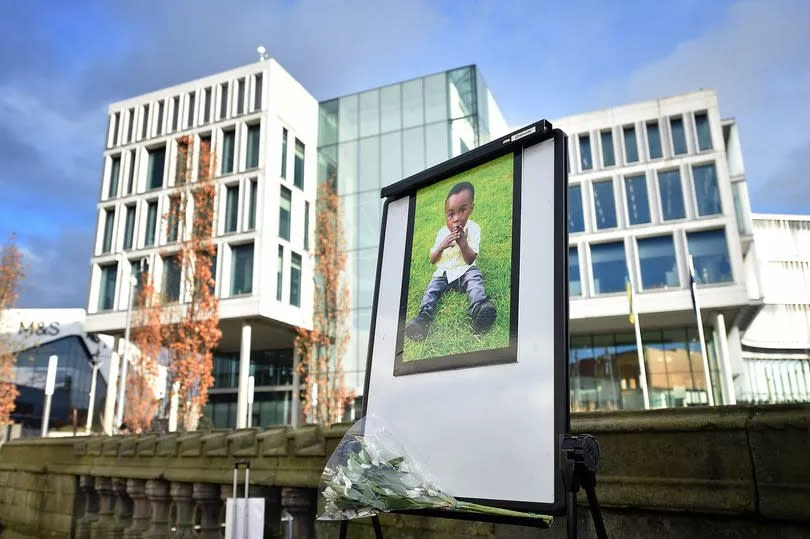
It was the summer of 2022 when the M.E.N first reported that two-year-old Awaab Ishak had died after being exposed to damp in a Rochdale flat. Later that year, a coroner concluded these conditions - which his parents had desperately sought help with - contributed to his death in 2020.
Immediately after the inquest, the M.E.N launched a campaign for Awaab's Law to make sure such a tragedy can never happen again. In 2023, the bill, which forces social landlords to adhere to strict timeframes to inspect and repair mould, was approved in Parliament.
Housing secretary Michael Gove also gave Greater Manchester £15m to improve standards of social housing in the city-region. But while the money has been welcomed, much more is needed to build the huge number of new homes that the city-region requires.
Last year, as part of the latest devolution deal, Greater Manchester was given £150m to build 7,000 new homes on brownfield land. But in Manchester alone, 36,000 new homes - 10,000 of them affordable - are needed over the next decade to keep up with demand.
It comes as rent continues to rise across the city-region with average prices in the private rental market standing at around £1,193 a month in Manchester. In Oldham, rents have risen by 14.2 per cent in the last year - more than anywhere else in Greater Manchester.
And, despite the Conservatives promising to ban 'no fault' evictions, there has been a spike in Section 21 notices, leaving some people with nowhere to live. Last year, 570 no fault eviction claims were filed in the city, more than double what they were in 2010, and yet another record high.
Health
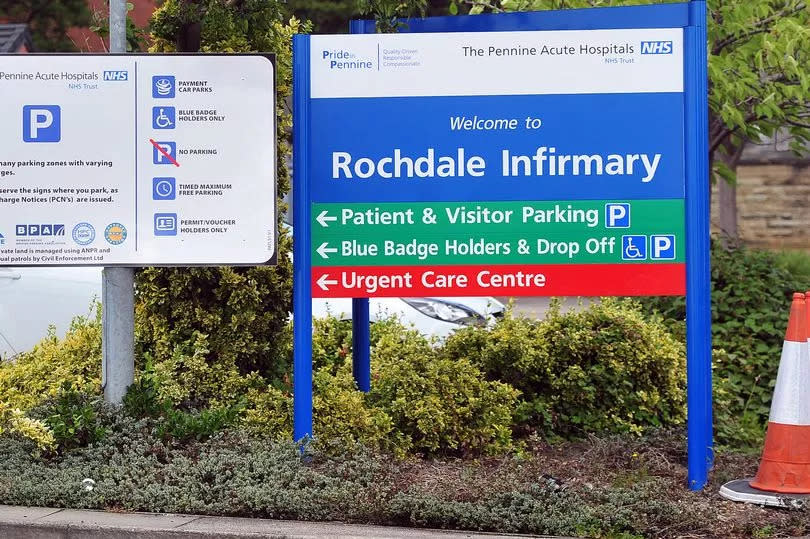
The NHS was already threatened by cuts before the Conservatives came to power in 2010 with health bosses in Greater Manchester told to slash spending plans by almost £1bn pounds before Labour lost the election. But when the Tories took over, further savings were ordered and, by 2011, it was confirmed that maternity units in Rochdale, Bury and Salford would be closed completely.
In 2013, Trafford General Hospital - which was the birthplace of the NHS - lost its A&E department. And, in 2014, the most radical shake-up of healthcare in the city-region since the 1940s was unveiled, with plans aimed at making the health service more cost efficient.
But by the end of that year, it was clear that the system was struggling to cope with demand. That Christmas, every hospital in Greater Manchester failed to meet its A&E targets, with more than 2,800 people waiting for more than four hours in one week.
A&E waits have generally been getting worse year-on-year since 2011. But they have been particularly bad since the pandemic.
Greater Manchester was hit particularly hard during the pandemic. And throughout this period local leaders were not listened to.
The first national lockdown was lifted when the number of cases fell in London despite concerns raised in Greater Manchester where the infection rate remained high throughout 2020. Two months later, when the government decided to impose tougher measures in the city-region, mayor Andy Burnham said he was given one hour to discuss the decision with local leaders - then 'all hell broke loose'.
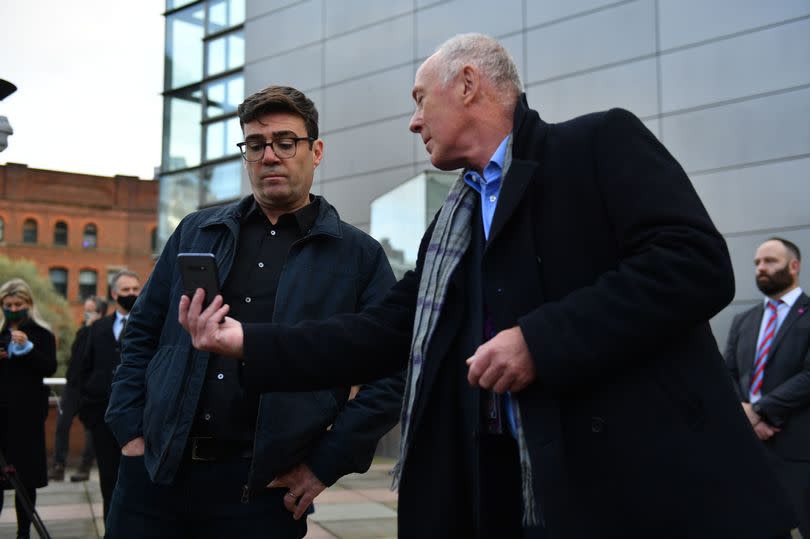
But nothing demonstrated the disrespect shown for the North during the pandemic more than what followed that autumn. Bolton faced some of the toughest restrictions in the country - but financial support for the businesses that had to close was not forthcoming.
Then, in October, an almighty stand-off between Mr Burnham and the government came to a head. During a press conference the mayor was interrupted by news that the Tier 3 measures would come into force with an offer of financial support slashed by a third.
Three years later, the Covid inquiry revealed that people at the top of government had said that Greater Manchester should get a 'punishment beating' because the mayor was 'behaving appallingly' by demanding more money. At its peak, the Covid death rate was 25 per cent higher in Greater Manchester than in England as a whole, meaning hospitals here were under more pressure than elsewhere.
This pressure reached its peak in early 2022 when the Omicron variant wave hit, forcing NHS bosses to cancel non-urgent surgery. Staff who spoke to the M.E.N during this period said that they were 'one admission away from absolute disaster, every single shift'.
Later that year, patients were regularly being held in ambulances for hours outside hospital as they waited for a bed to become available. This crisis climaxed in October when a patient died in the back of an ambulance outside Fairfield General Hospital in Bury.
The elderly patient was triaged and examined by doctors, and antibiotic treatment began, all in the back of the ambulance. The patient died after suffering a cardiac arrest while still in the back of the ambulance some three hours after arriving at hospital.
The Northern Care Alliance, which runs the hospital, apologised and the North West Ambulance Service launched an investigation in response to the death. It came as paramedics across the country raised concerns that ambulances were ‘being treated as extra wards’.
Ambulances queuing outside hospitals - and consequently unable to attend other emergencies - are no longer a common sight. Instead, patients are waiting in hospital corridors now, with A&E staff warning the M.E.N last winter that they 'can't keep people safe anymore'.
It follows a series of strikes by NHS staff, with industrial action by junior doctors still ongoing. But sources within Greater Manchester's health service have said that the worsening situation is caused by social care being overstretched, which means that hundreds of beds are taken up by people who no longer need to be in hospital. In November 2022, that figure topped 1,000 - and it still remains high.
Between January and March 2024, only 51 per cent of people attending Manchester University NHS Foundation Trust's major A&E departments were admitted, transferred or discharged within four hours. That’s down from 97 per cent during the same period in 2010.
Shockingly, 1,884 of those patients attending the trust's type 1 A&Es were waiting more than 12 hours in the first three months of this year. Prior to 2022, the highest number of patients waiting in A&E for more than 12 hours in that three month period was two in 2016.
Meanwhile, Greater Manchester's hospitals are falling apart. Last year, theatres were closed for over a month after a ceiling collapsed at North Manchester General Hospital - which has been earmarked for an upgrade as one of Boris Johnson's '40 new hospitals' promise.
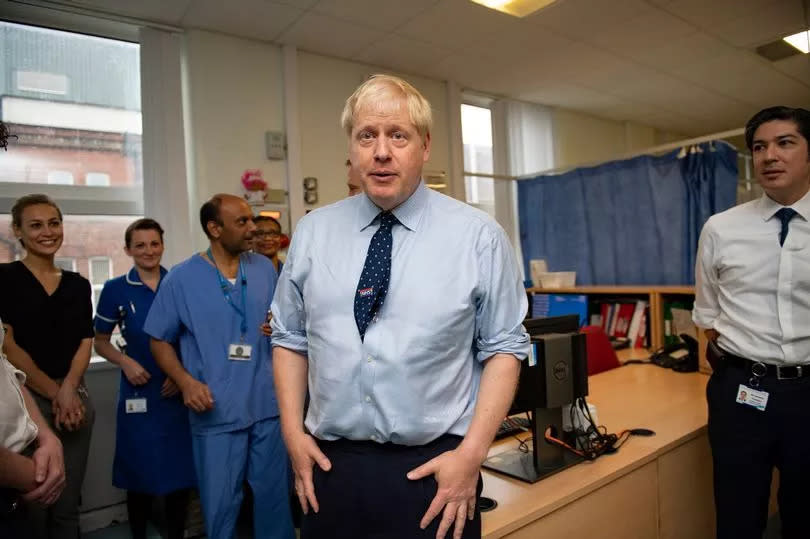
Last year, dangerous crumbling concrete known as RAAC was found in five hospitals in Greater Manchester. In January this year, the Royal Bolton Hospital had to move some of its maternity services on-site and relocate women's healthcare services elsewhere.
This year, Stepping Hill Hospital in Stockport saw one of its major outpatients buildings condemned, followed by two ‘unexpected and unrelated’ ceilings collapsing in its radiology department and its critical care unit. Organisations within the NHS are falling apart too.
In September 2022, the Greater Manchester Mental Health trust (GMMH) was plunged into the highest level of scrutiny by NHS bosses after BBC Panorama revealed sickening scenes of patients allegedly being abused by staff at Prestwich's Edenfield Centre.
But evidence of the problems at the trust was apparent long before that. Since 2017, the M.E.N has detailed how inquest after inquest has concluded that a lack of care from GMMH had a role to play in patients meant to be under the trust’s care taking their own lives.
Last month, the troubled NHS trust appointed a new chief executive. But just this year, a report revealed that the problems persist.
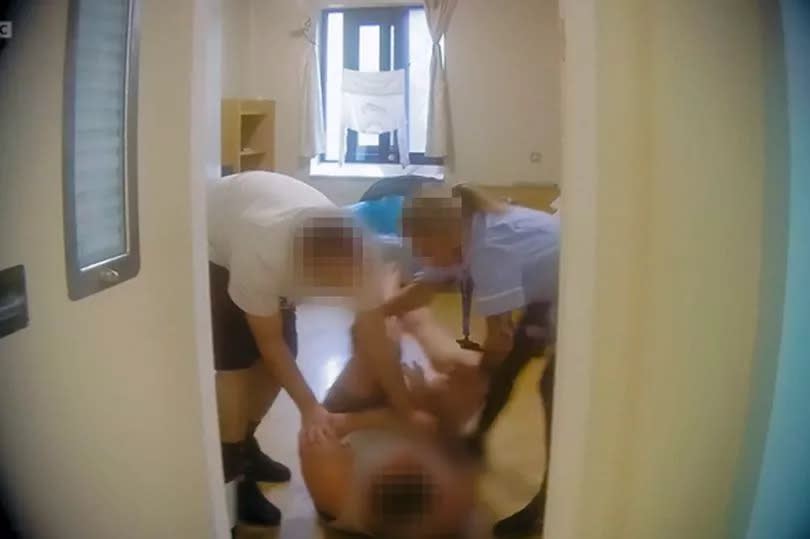
Clearly, the blame for the failings at GMMH cannot all be laid at the government's door. But funding shortfalls certainly haven't helped.
Last year, the M.E.N revealed that Greater Manchester's NHS had an £86.5m financial black hole. This year, it faces a £180m deficit.
Now, the organisation, which has been run locally since under a devolution deal with the government in 2015, is under intense scrutiny from national NHS bosses. Nonetheless, Zahid Chauhan, a GP and Labour councillor in Oldham, says devolution has been a 'good thing'.
“But people are waiting longer and longer in A&E, for their GP, and for dental appointments," the doctor adds. "Patient experience is worse, waiting times are higher, and people’s lives aren’t any better. The postcode lottery still exists in the ‘Northern Powerhouse’."
Crime
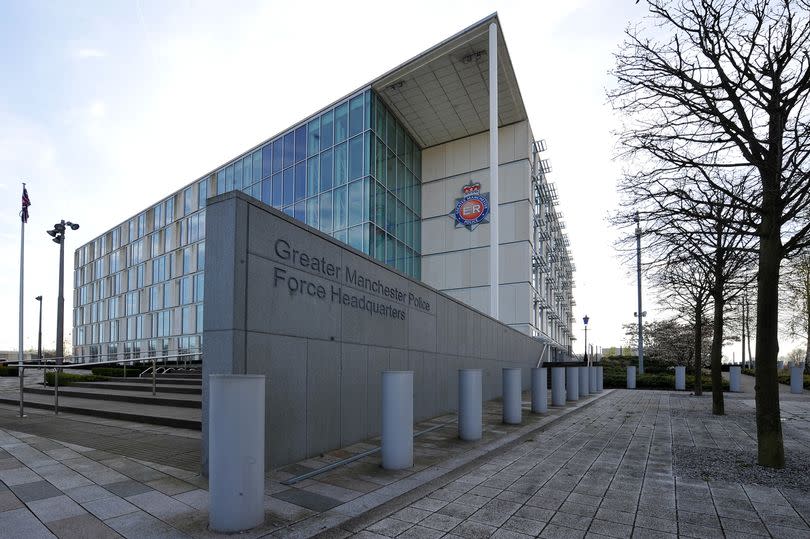
Another organisation that has faced financial difficulties over the last 14 years is Greater Manchester Police. In 2010, there were 8,148 officers serving in the force - but by 2016, after policing budgets were slashed by the government - this figure had fallen to just 6,297.
Four months into the coalition government, a top GMP officer told the M.E.N that thousands of crimes that are reported are never investigated with officers told to concentrate on cases they can solve. But over the next decade, this issue seemed to get worse.
In 2015, the force's incoming chief constable Ian Hopkins told the M.E.N that, amid funding cuts, officers may not have the time to investigate burglaries straight away. Three years later, the M.E.N revealed that most burglaries and thefts were not being investigated.
Increasingly, it felt like the police were withdrawing from communities. But, despite GMP officers continuing to blame cuts, the cash-strapped police force lost its 'good' rating after it was told by inspectors in 2018 that it was failing to attend to incidents fast enough.
The following year, whistleblowers told the M.E.N that GMP's new £27m computer system was wreaking havoc in the organisation. Some went as far to say that the Integrated Police Operating System (iOPS) was so unusable, it posed a risk to police and public safety.
Then, in December 2020, after years of denial, obfuscation and secrecy from those at the top of the organisation, GMP was placed in special measures. Inspectors found the force was failing to record one in four violent crimes, meaning people were 'denied justice'.
Two years later, GMP came under heavy criticism in a public inquiry for its handling of the Manchester Arena bombing. The force eventually admitted that its response on the night of the terrorist attack in 2017 was 'inadequate' and apologised 'unreservedly'.
Stephen Watson, who now serves as GMP's chief constable, was tasked with turning things around. Soon after his appointment in 2021, the force promised to attend every report of residential burglary - 15 months ahead of the government requiring all forces to do so.
The following year, GMP was out of special measures. And, according to the latest data, the force has continued to improve since then.
GMP solved nearly 50 per cent more crimes in 2023 compared to three years before, with the force saying it had 'driven down' crimes such as burglary, violent crime, and theft, while arrests are up. The force is now among the fastest in the country to answer 999 calls.
It comes amid a 50.6 per cent increase in the crime rate since 2015. However, burglaries have come down by 40.8 per cent in that time.
Knife crime has also fallen in the city-region - by 16 per cent last year. But it comes after the M.E.N reported on 17 serious stabbing incidents in just two months at the start of 2023 with Greater Manchester's mayor saying last October that there is more work to do.
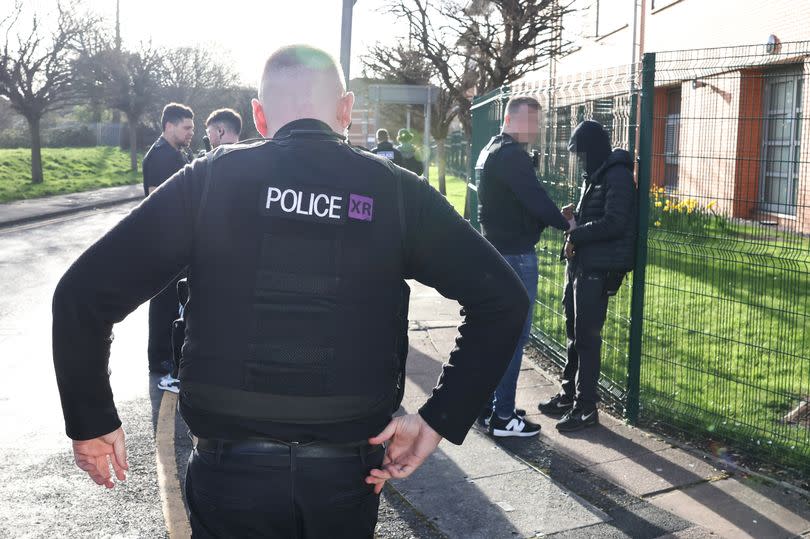
A boost in officer numbers, partly as a result of a national programme, has undoubtedly helped. But with 8,189 police officers serving in the force, as of March 2024, the numbers have only just reached 2010 levels after a decade of losing so much experienced personnel.
Despite the force's insistence that funding cuts were to blame for GMP's failures, it is clear that cultural issues within the organisation played a huge role in its problems. But Greater Manchester Police Federation chair Mike Peake says that budget cuts are still an issue.
"The stark reality is that GMP doesn’t have enough police officers," he said, "and I have real concerns around sustainability as our already stretched officers are being asked to do more and more. Fatigue is kicking in and cops are getting burnt out."
The legal system has faced its own issues too during the last 14 years. In 2014, barristers went on strike over plans to cut legal aid.
Eight years later, another dispute over legal aid funding led to another walkout. It took four months until a pay deal was agreed.
Meanwhile, hundreds of trials were delayed, adding to the unprecedented court backlog across the country, which was exacerbated by Covid. Last September, government data revealed that there were 3,867 outstanding cases in Greater Manchester's crown courts.
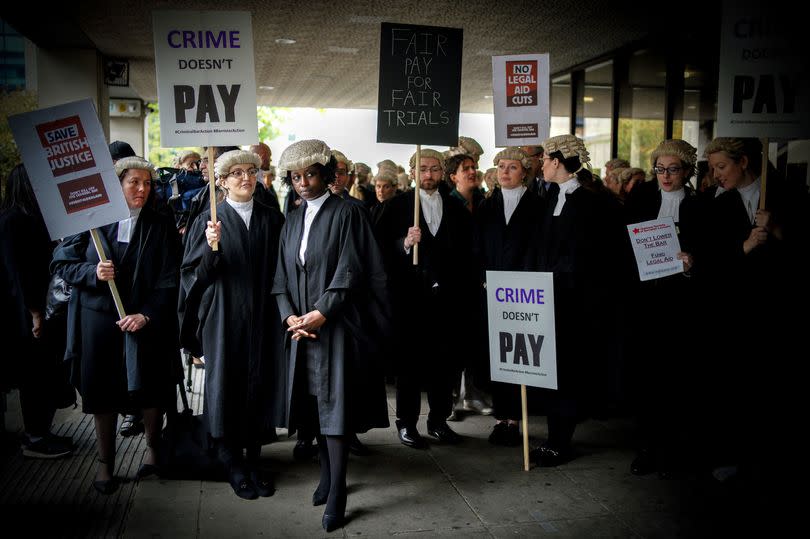
Last month, the National Audit Office said that the backlog has got larger and concluded that the government's target of reducing the backlog to 53,000 by March 2025 is no longer achievable. Its report also revealed victims now wait 22 months on average for a verdict.
Elsewhere in the legal system, the probation service has taken a complete U-turn over the last decade with the supervision of criminals in England and Wales now back under public control after major failings in its part-privatisation. It came after a growing number of ex-prisoners were dying after getting out of jail with the toll reaching 71 across Cheshire and Greater Manchester in 2017/8.
Many prisons, however, remain in the hands of public companies such as Sodexo Justice Services, which runs the 1,460-capacity Forest Bank in Salford. The company, which was awarded a £1bn contract in 1998 to design, build and run the prison built on the site of the old Agecroft power station, was served a 45-day improvement notice by the government in 2021 after serious concerns were raised.
But the following year, the firm was told it could keep its contract after a major refurbishment was agreed. Last year, however, an M.E.N investigation revealed allegations that drugs are rife in the jail with violence commonplace and inmates 'running the wings'.
This year, the government announced that some prisoners could be released up to two months early to tackle overcrowding in jails. It came as the Prime Minister's spokesperson suggested that prisons in England and Wales could reach their full capacity within months.
Devolution
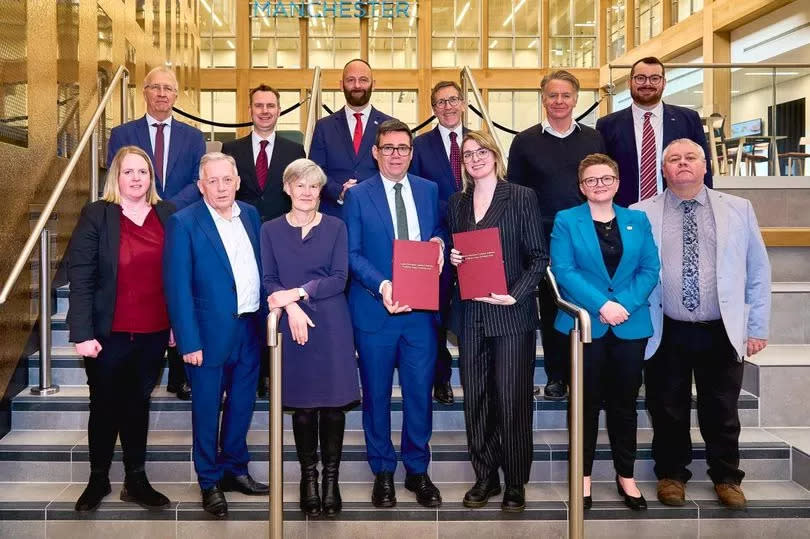
When asked what the greatest legacy of Conservatives has been in Greater Manchester, many point to English devolution. In fact, Mr Burnham - whose role as mayor was created as a result - has said that it is the Tories' 'only significant legacy' from the last 14 years.
The first devolution deal for Greater Manchester, which was agreed later that year, saw the city-region gain more control over transport, vast sums of cash for housing and power over policing and crime. The following year NHS funding was devolved too.
Devolution gave Greater Manchester its first elected mayor in 2017, and the office's power and influence has increased ever since, culminating in the trailblazer deal struck last year. By 2025, the funding model of the Greater Manchester Combined Authority will be similar to that of a government department, giving Mr Burnham more financial freedom, in a move set to be rolled out in other regions too.
The deal also means buses, trams and local trains can be brought under one public transport system similar to London's, with fares made simpler with daily caps set on all three. Greater Manchester is also set to have more of a say over technical education budgets.
Mr Burnham now wants businesses to work with schools, colleges and universities so that young people have 'clear sight' of career opportunities in sectors such as technology, construction and manufacturing. The Labour mayor hopes that creating the Manchester Baccalaureate will offer an alternative route into these sectors for the two-thirds of young people who do not go to university.
The MBacc would consist of a set of GCSEs that would lead to further study through BTECs, T-Levels and degree apprenticeships within seven sectors. The scheme - which some schools, colleges and businesses have now signed up to - promises to maximise the chances of getting a good job in those sectors while boosting the workforce in the local economy with home-grown talent.
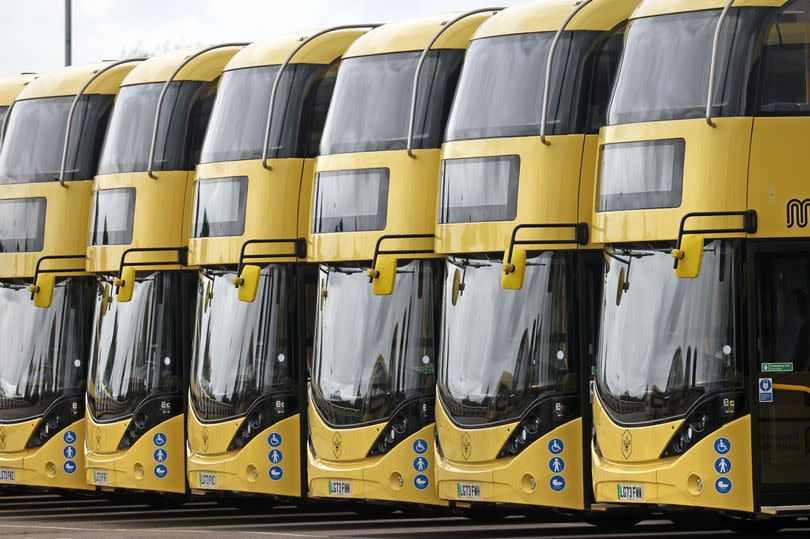
Perhaps the most visible sign of devolution taking effect in Greater Manchester arrived last year. In September 2023, the city-region took buses back under public control for the first time since the 1980s under a new franchising system to be fully rolled out next year.
The new London-style public transport system, dubbed the Bee Network, has benefited from huge sums of investment from the Conservative government. The latest trailblazer deal also came with £150m of cash that will see around 7,000 homes built by 2026.
Mr Burnham has also asked the government for more powers to punish rogue landlords by withholding housing benefit payments as part of this scheme which, the mayor says, was agreed in principle during negotiations over the latest devolution deal. Meanwhile, the Labour mayor has announced that every tenant will have the right to request a property check as part of his Good Landlord Charter.
Days after his re-election to a third term in office, Mr Burnham vowed to end the housing crisis within a decade, promising to build a 'new generation' of 10,000 council homes by 2028. He also called for 30,000 new council homes in the city-region to be exempt from the Right to Buy, which allows tenants to buy their council homes, with councils given powers to suspend the scheme in certain areas.
But devolution has its limits. On many issues, mayors' powers are limited to convening local leaders and making their voices heard.

Mr Whitham, CEO of the now rebranded Resolve Poverty group, says the government did not intend to improve living standards through devolution. "We're not devolving powers with a direct intention of lifting people out of poverty in these areas," he said.
"For the last 14 years it's been about what can local councils do about poverty in spite of the government?" the charity boss added.
Nevertheless, by some measures lives have improved through devolution. In 2022, a study funded by The Health Foundation, found that life expectancy has improved in Greater Manchester with researchers citing the devolved health system as part of the reason.
Life expectancy rose faster in Greater Manchester compared to similar English areas between 2014/16 and 2017/19, according to the paper, which was published in The Lancet. The 'modest' improvement was more than the average change in the same period, it said.
But since the pandemic, despite the government promising to reduce health disparities in the UK, differences in life expectancy across different parts of the country have grown. Life expectancy at birth for Manchester residents fell by an estimated 3.1 years for men and 1.9 years for women in 2020, compared to England's fall of 1.3 years for men and 0.9 years for women, according to a council report.
Last year, the M.E.N looked at how the government was doing on its levelling up targets. We found GCSE grades in the North West had fallen further behind those in London while the region had the highest and fastest-growing unemployment rate in the country.
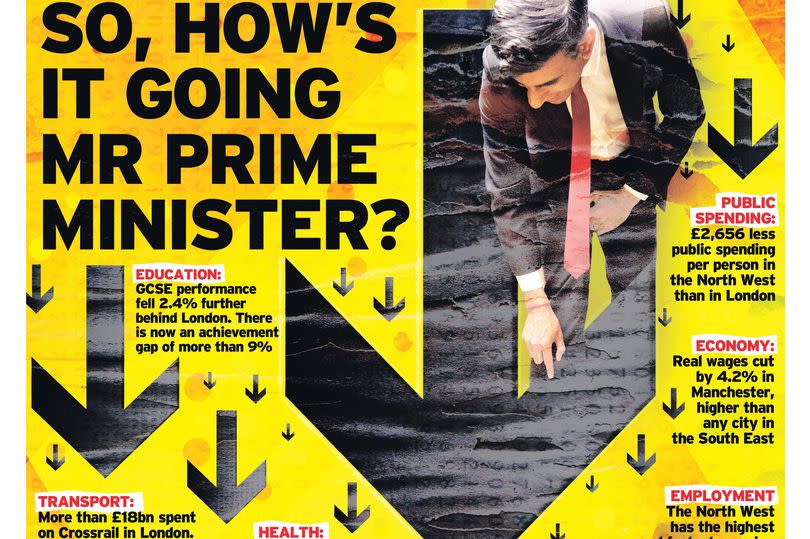
However, one target the Levelling Up White Paper - published in 2022 - has achieved is for more devolution. It was this document that kickstarted talks on the next stage of devolution for Greater Manchester which was selected as one of two 'trailblazer' city-regions.
Mr Burnham, whose role was expanded as a result, says devolution has 'galvanised' people in Greater Manchester, creating 'energy' and 'positivity'. But looking back over the last 14 years Manchester council leader Bev Craig says much of this is not felt by residents.
"Across a number of metrics, the last 14 years has seen little Government led success that is felt by residents in our city, she says. "Promises of unleashing a Northern Powerhouse have not been kept.
"From increasing rates in poverty through to the cancellation of HS2, rhetoric has not matched reality."
'A new era'
When the Conservatives came to power in 2010, Manchester was a city on the up. In the wake of the IRA bombing of the Arndale in 1996, the city began to build itself back up in a bid to reverse decades of post-industrial decline.
With the backing of the last Labour government, Greater Manchester made huge strides in establishing itself as a global city once more. From hosting the Commonwealth Games in 2002 and the regeneration of east Manchester that came with it, to the BBC's decision to move to Salford Quays, the city-region was on the rise in so many ways.
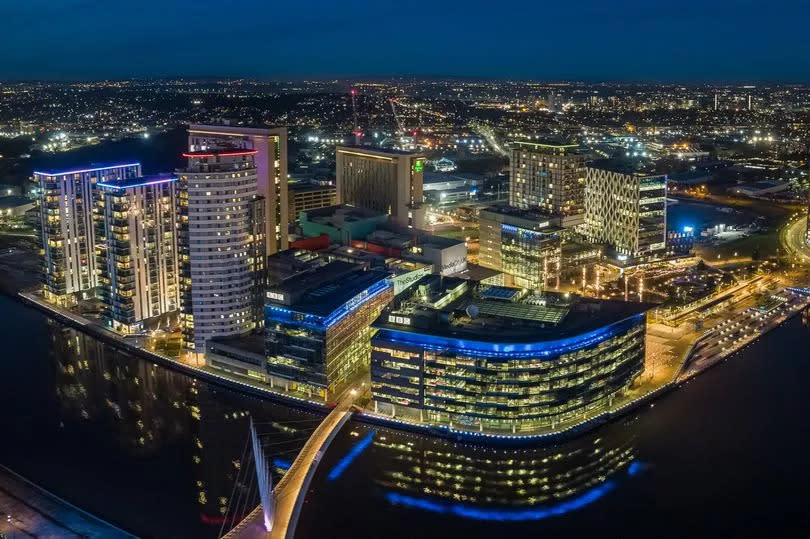
While the 2008 financial crash hampered investment, political choices made by the Conservatives when they came to power, such as the decision to scrap a £250m regeneration scheme in Collyhurst, also set the city back. Having said that, Greater Manchester has continued to grow despite tough economic conditions over the last 14 years.
The Northern Powerhouse may not have delivered on all of its promises, but it led to huge projects, such as the University of Manchester's Henry Royce Institute and Factory International's Aviva Studios, being built. And while government investment in Greater Manchester has wavered over the years, private investment has poured in.
Uncertainty over Brexit, the pandemic and the war in Ukraine which contributed to the cost of living crisis, has not made things easy. But Manchester has continued to grow over the last decade despite these difficult circumstances.
The city centre - with some of the suburbs around it - has changed beyond recognition with new opportunities being created all the time. It is undeniable that development has continued at pace under the Conservatives.
However, many Mancunians have been left behind. Poverty has increased, public services have deteriorated and, at times, it has felt as though police have withdrawn from communities.
Not every problem can be laid at the government's door. Devolution means we have more of a say over our own destiny in Greater Manchester - and with that, local leaders must take some responsibility when things go wrong.
But years of austerity have taken power away from public bodies, making it almost impossible for some services to function properly. In that regard, as Manchester's former council leader Sir Richard Leese says, it feels as though Manchester has continued to do well 'in spite of government policy'.
"It's been a difficult 14 years," Mr Burnham says, "but it's a mixed picture.
"Some of it's been really difficult but we've held together and we've not been torn apart by it.
"We're pretty buoyed up," he says. "We've got an overwhelming sense of a new era in Greater Manchester."

 Yahoo News
Yahoo News 
